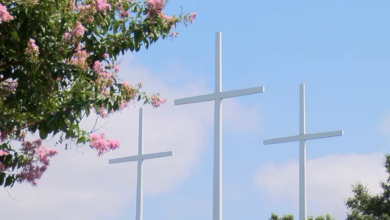Nepal to celebrate Hindu festival after two-year Covid gap

Kathmandu, February 22 (EFE).- A major Hindu festival celebrated in Nepal, Maha Shivaratri, is set to make a return next week after a gap of two years induced by the Covid-19 pandemic, religious authorities announced on Tuesday.
The festival, to be held this year on Mar. 1, marks the end of winter and the arrival of summer, and can be roughly translated as “the great night of Lord Shiva.”
Each year, a major celebration event is held at the Pashupatinath Temple in Kathmandu, a World Heritage site and one of the holiest Hindu shrines in Nepal. The day-long festival attracts visitors from across the country, apart from neighboring India.
“We’re delighted to announce the festival after two years. We are expecting more than 1 million devotees to visit the temple on the occasion, especially from India,” Milan Kumar Thapa, member secretary of the Pashupati Development Trust – the organizers of the event – told EFE.
He added they were planning to hold a full-fledged program as the country has witnessed a drop in coronavirus cases.
Nepal on Tuesday reported 476 new Covid cases in the last 24 hours, after recording as many as 12,300 daily cases on Jan. 20.
According to the legend, the festival – which falls on the 13th or 14th day of the second fortnight of the lunar month of Falgun – is celebrated to warm Lord Shiva, a god in the Hindu pantheon, who feels cold on this day.
As part of the celebrations, devotees light bonfires at their houses, public places, temples and perform prayers.
Thapa said the organizers had arranged for 34,800 kgs of wood to light bonfires in the premises of the Pashupatinath temple.
“We have also arranged lodging and food facilities for sadhus (Hindu monks) from February 27,” he added.
More than 3,000 personnel from Nepal Police will be deployed for security, while the temple will be decorated with flowers and lights for the festival.
According to temple authorities, thousands of Naga ascetics – holy men in the Hindu tradition who do not wear any clothes and smear their bodies with ash, apart from growing dreadlocks – were expected to arrive for the festival from the northern states of India.
They are considered one of the main attractions of the festival in Nepal.
The Pashupatinath temple was was first closed for devotees in March 2020 when the first coronavirus wave hit Nepal.
The temple was reopened in December 2020, but shut again in April 2021 due to the second wave affecting the country.
The shrine was opened for a second time in September last year, but had to be closed in January due to the Omicron variant of the virus arriving in the Himalayan nation. EFE
sp/ia




